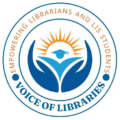In a library context, a thesis is a document that presents the research and findings of a student or scholar in partial fulfillment of the requirements for a degree or other qualification. These are often written as part of a master’s or doctoral program and may be based on original research or other scholarly work. Thesis topics may vary widely and may be drawn from a variety of fields, including the arts, humanities, sciences, and social sciences. These are often made available through a library or other repository and may be accessed by researchers and other interested parties.
There are many different types of theses that may be written as part of a degree or other qualification program, and the specific type of thesis used may depend on the field of study and the requirements of the program. Some common types of theses include:
- Research theses: These theses present the findings of original research or investigation, and may include a review of relevant literature, research questions or hypotheses, methods and materials, results, and conclusions.
- Experimental theses: These theses present the results of experimental or empirical research, and may include a description of the experimental design, data collection and analysis, and conclusions.
- Theoretical theses: These theses present a review and synthesis of existing literature and theories, and may include an evaluation of the current state of knowledge in a particular field and proposals for future research.
- Creative theses: These theses may take the form of a creative work, such as a novel, play, film, or artwork, accompanied by a critical essay or analysis.
- Professional theses: These theses may be written as part of a professional qualification program, such as a law or business degree, and may present the findings of a practical or applied research project.
The specific type of thesis used may depend on the needs and requirements of the degree or qualification program, as well as the interests and goals of the student or scholar.
